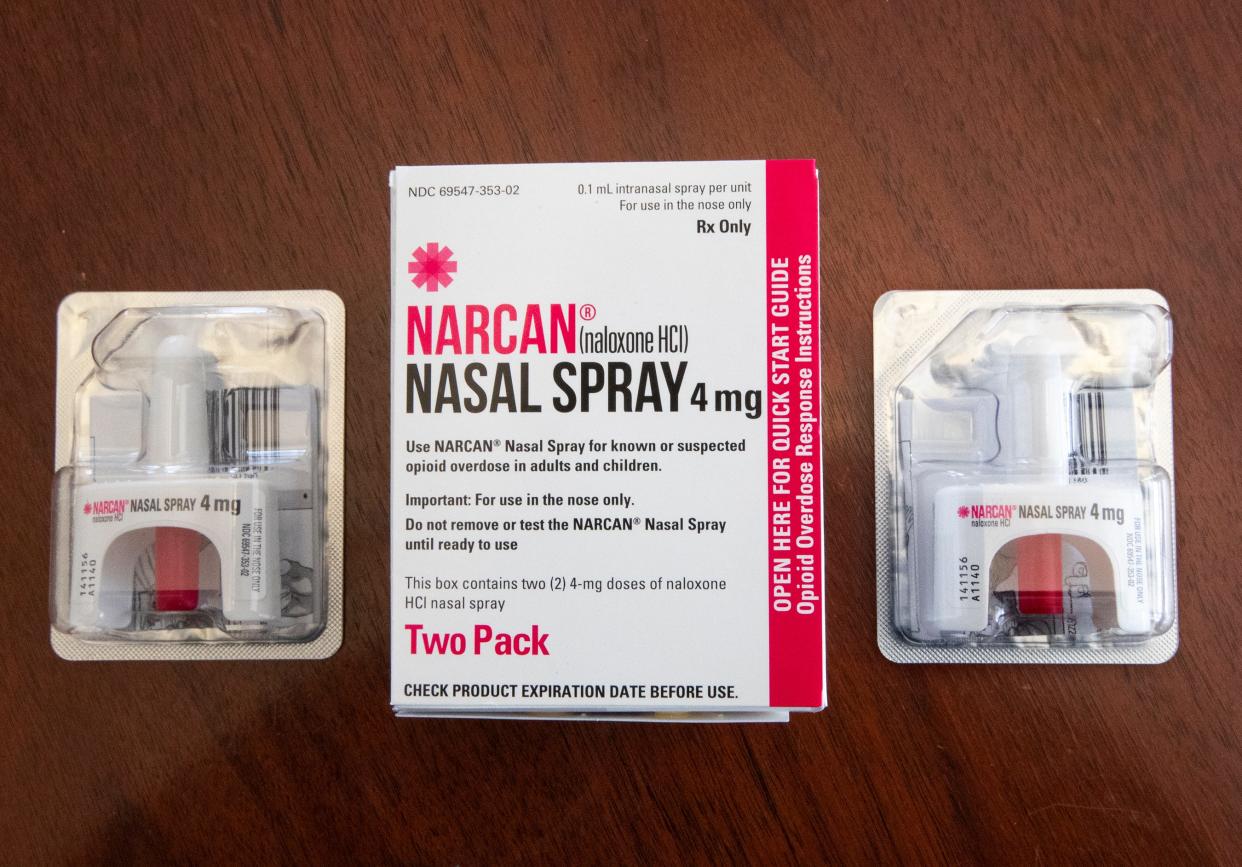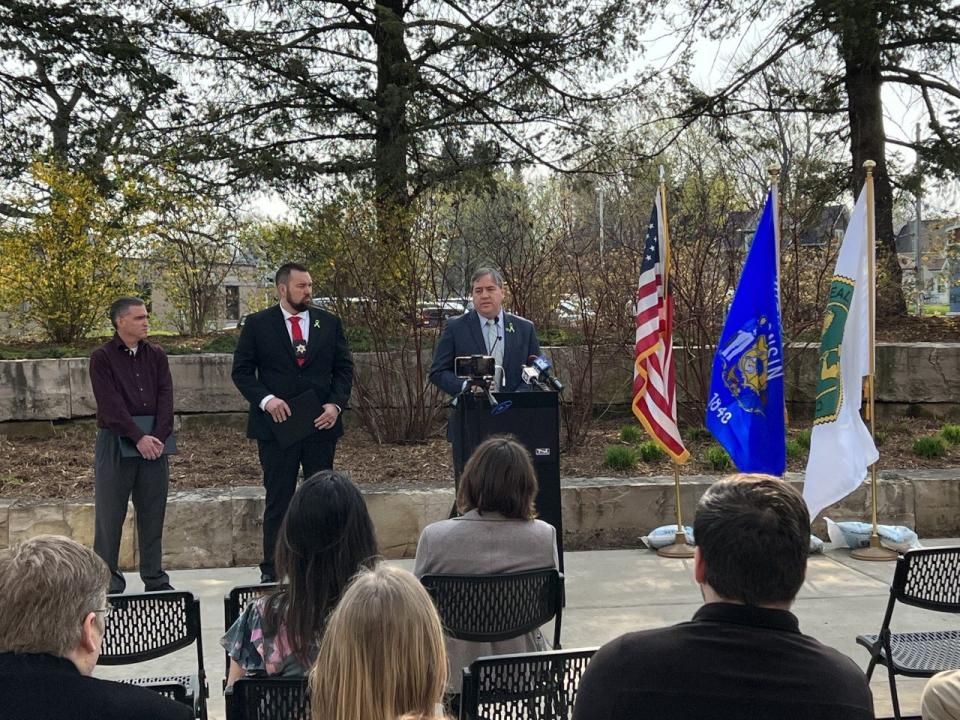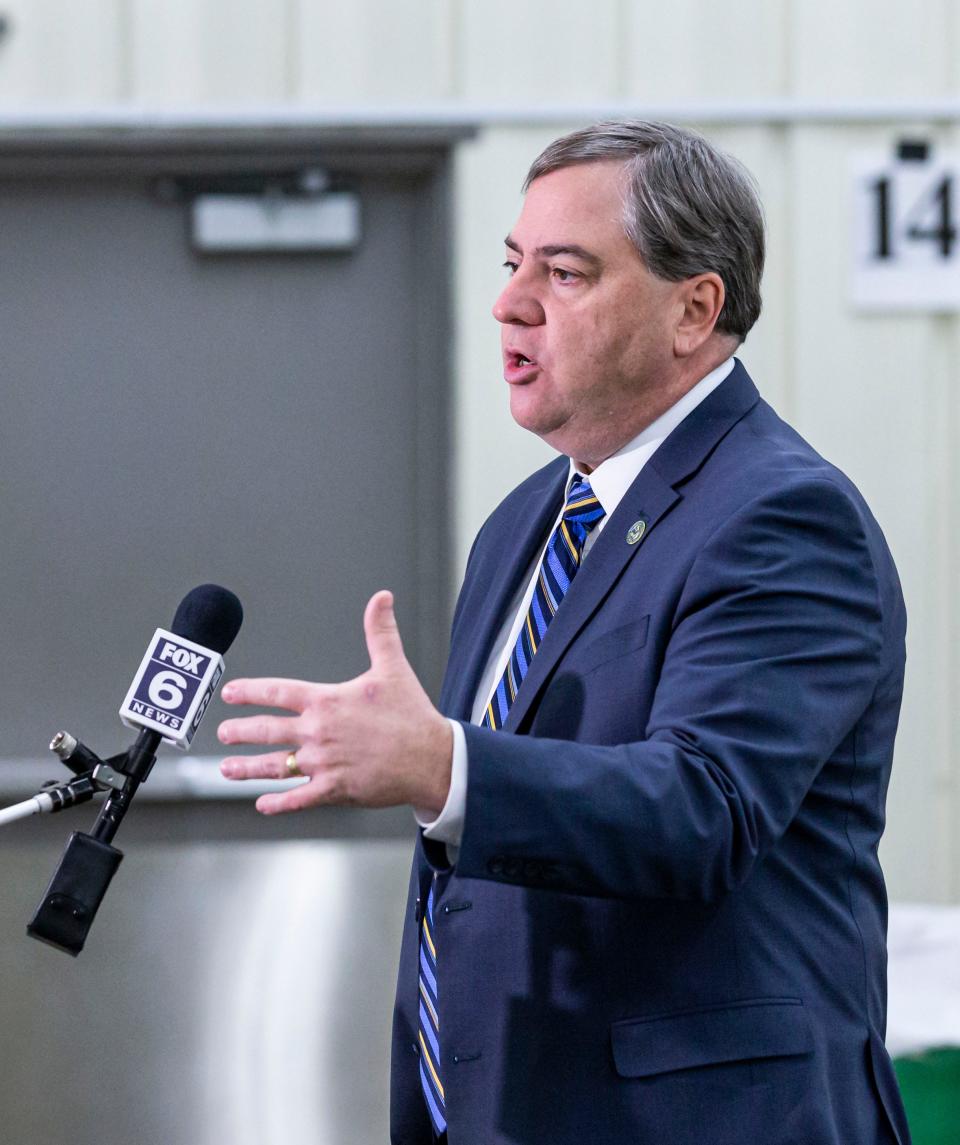'We need to make a difference:' Waukesha County officials explain how they'll use $200,000 to fight the opioid epidemic

Waukesha County officials are hoping $200,000 — and $17 million over the next 18 years — will help lower the rising number of drug overdoses and overdose deaths experienced across the county in recent years.
In 2020, a record 95 lives were lost to drug overdoses in Waukesha County. In 2021, 79 overdose deaths were reported.
The rise is concerning to Waukesha County Executive Paul Farrow, who spoke at a news conference Tuesday morning in recognition of National Prevention Week.
"We need to make a difference. The challenge that we face is engaging everyone we can to help us overcome this," Farrow said. "So National Prevention Week is just an opportunity for us to shine a spotlight on the issues but also the successes that we're having."
Farrow announced that $200,000, secured through Substance Abuse Block Grant funds, will help with prevention efforts across Waukesha County, mainly through the help of the Addiction Resource Council Inc. That organization, based in Waukesha County, works with several public and private organizations in the area.
A $420 million settlement with opioid distributors will help fund the effort
Waukesha County is also set to receive $17 million over the next 18 years through a $420 million settlement with opioid drug distributors that must be used to combat the epidemic.
Those funds can be used in several ways, including expansion of training to use a drug that reverses opioid overdoses, availability of medication-assisted treatment and treatment for neonatal abstinence syndrome.
Farrow is hopeful the funds will help address the recent increase in overdoses as fentanyl continues to be a deadly killer across the county and nation. Fentanyl, either alone or in combination with other drugs, accounted for 62 of the 79 drug overdose deaths in Waukesha County last year.
Drug overdoses in Waukesha County were actually decreasing from 2017 to 2019 but that all changed in 2020 when the coronavirus pandemic began.
"Unfortunately, we had a major setback when COVID hit," Farrow said. "Individuals' lives were disrupted, but more importantly the programs that we had to help them were disrupted and we couldn't get back to them right away."

How will the money be used?
John Kettler, the integrated services coordinator for the Waukesha County Department of Health and Human Services, said the county secured $421,000 in Substance Abuse Block Grant funds.
The funds, secured through a federal program, can be used for prevention strategies, which include education, problem identification and referral and information dissemination.
Kettler said just over $100,000 of that amount has been allocated already.
"Those funds are being utilized by the Addiction Resource Council to provide prevention activities in both the school and community," Kettler wrote in an email.

Tuesday, Farrow announced an additional $200,000 had been allocated.
"That $200,000 will be used directly by schools as well as through contracted efforts with the licensed prevention agencies in our area to do work in schools and the community," Kettler said.
One of the programs the funds are helping includes "Resist the Influence" from the Addiction Resource Council Inc. That program teaches students about the impacts of drug and alcohol.
The additional funds will help the organization expand the program into more schools in Waukesha County, including at private and parochial schools.
Here's what Waukesha County has already done to address the problem
Farrow said Waukesha County has held more than 500 Naloxone trainings since 2017, training more than 4,800 people on how to use the medication, which is more commonly known as Narcan.
Narcan is often seen as the most-effective way to reverse an opioid overdose.
Since 2017, nearly 300 lives have been saved with Narcan in the county, according to the Waukesha County Naloxone Project.
Farrow also said the move by the Waukesha County Sheriff's Office to embed a full-time mental health professional was a step to address the rising number of calls to law enforcement that are related to mental health.
The department responded to 691 mental health-related calls in 2020, compared with 236 in 2018. In 2021, that number rose to almost 800.
Waukesha County is also set to receive about $1 million later this year through the settlement with opioid drug distributors. The funds are part of a $26 billion settlement that involves various defendants, including McKesson Corp., Cardinal Health, AmerisourceBergen, Johnson & Johnson and Janssen Pharmaceuticals.
Overdose deaths continue to rise
Data from the Centers for Disease Control and Prevention found that there were an estimated 100,306 drug overdose deaths in the United States during the 12-month period ending in April 2021.
A 2020 state report pointed to the crippling stress and isolation suffered by many during the coronavirus pandemic as possible reasons behind the large increase in drug overdoses and deaths since the start of the pandemic in Wisconsin.
The Wisconsin Department of Health Services report found that there was a 47% increase in suspected opioid overdoses during the first few months of the COVID-19 pandemic in 2020, according to ambulance run data.
Do you need help?
The Substance Abuse and Mental Health Services Administration has a free, confidential, 24/7, 365-day-a-year treatment referral and information service (in English and Spanish) for individuals and families facing mental and/or substance use disorders. Call 800-662-HELP (4357).
You can find the closest Narcan provider on the Wisconsin Narcan Direct program website at bit.ly/narcandirect.
Evan Casey can be reached at 414-403-4391 or evan.casey@jrn.com. Follow him on Twitter @ecaseymedia.
Our subscribers make this reporting possible. Please consider supporting local journalism by subscribing to the Journal Sentinel at jsonline.com/deal.
DOWNLOAD THE APP: Get the latest news, sports and more
This article originally appeared on Milwaukee Journal Sentinel: Waukesha County to use $200,000 to fight opioid epidemic

